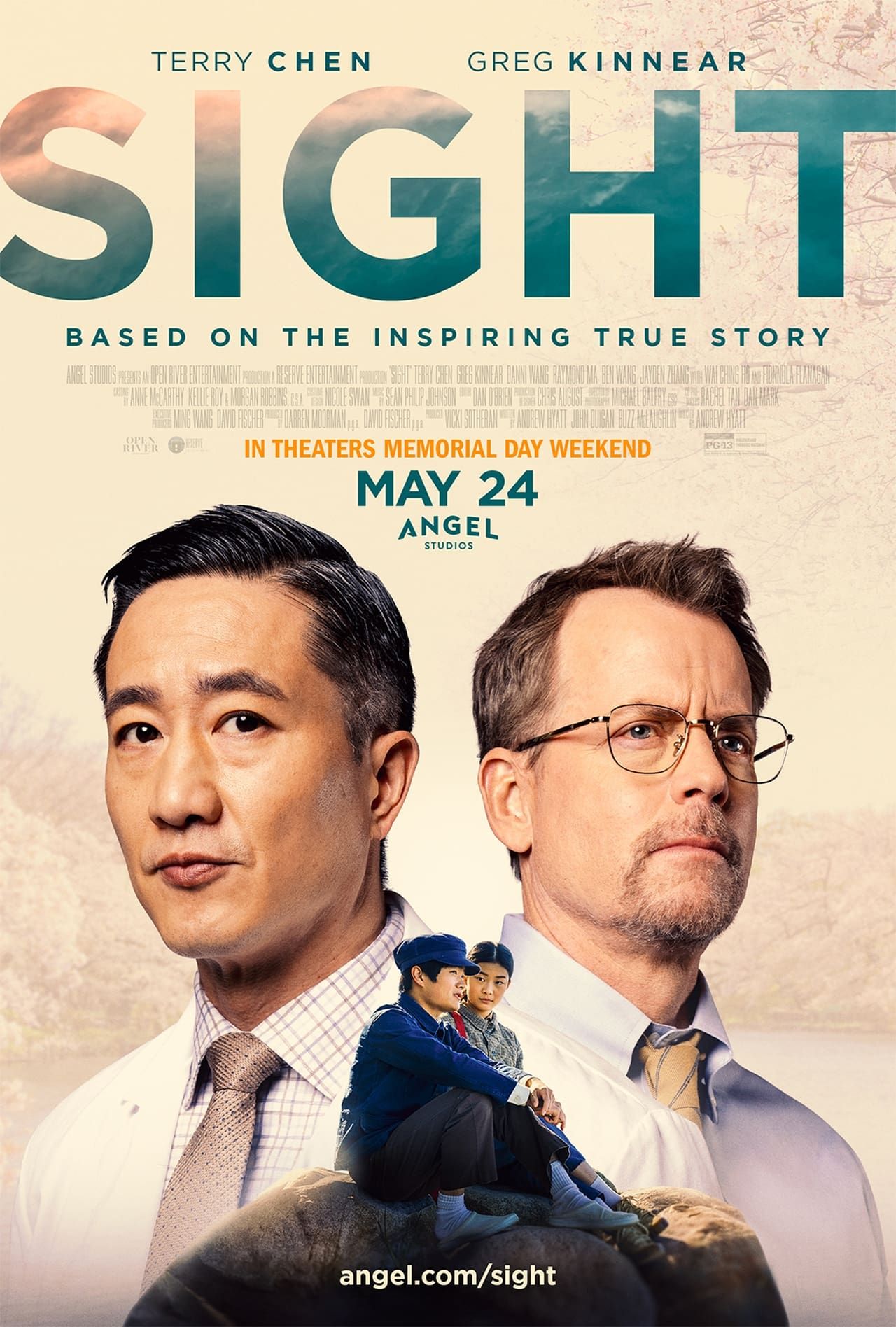Summary
- Dr. Wang’s extraordinary scientific achievements are poorly suited to dramatization.
- Sight fails to deliver emotional depth, instead opting for surface-level uplifting storytelling.
- The movie lacks compelling characters and fails to capture the true story’s significance.
A cloying melodrama with the texture and flavor of glue paste, Andrew Hyatt’s Sight is living proof that inspirational source material is no substitute for engaging filmmaking. In some ways, this isn’t the movie’s fault. After a shocking opening, Sight‘s main aim is to uplift without ever challenging the audience with anything too alarming. And yet, while the storytelling is as gently numbing as local anesthesia, the movie suffers from a lack of real drama, emotional subtlety, and compelling characters – a missed opportunity, considering the real events behind the production.
Sight tells the story of Ming Wang (Terry Chen), who sets out to become an eye surgeon in America after fleeing Communist China. Wang realizes the importance of his work and experiences the trauma of the Cultural Revolution when he helps a blind orphan abused by her stepmother.
Sight’s True Story Is Ill-Suited To Cinema
Based on the real experience of Dr. Ming Wang, Sight blends the story of a revolutionary new treatment for sight loss with flashbacks to the surgeon’s troubled upbringing in China. While the present storyline shows Dr. Wang as a major success, the head of a cutting-edge facility and an affable workaholic, his past makes it clear that things weren’t always so simple. His ambitions in his homeland were thwarted by Mao’s Cultural Revolution (a fascinating background that is never fully explained), forcing Wang to head to America to study.
Despite leaving China behind, Wang’s experiences growing up shape his outlook as a doctor. Inspired by medical parents, he is profoundly affected by an accident afflicting his friend’s father, leaving him blind. This inspires him to set up his eye surgery clinic, where he offers pro bono support to needy patients, ultimately innovating an ingenious procedure that uses the human placenta to heal retinal scar tissue – a method that has helped restore sight to thousands. It’s an interesting scientific story that would be well-suited to a specialist documentary. Unfortunately, as a drama, Sight falls way short.
Sight’s Narrative Lacks Drama
There’s little conflict to speak of
Made by Angel Studios, best known for its variety of religiously-themed content, Sight is a more secular story than the company’s usual output. While the movie’s religious association generally bubbles below the surface (save for the infrequent appearance of a proselytizing nun), there’s a sense that this context prevents the film from delving below the surface of its subjects. Dr. Wang and his friend and colleague Misha Bartnovsky (played by Terry Chen and Greg Kinnear, respectively) are mawkishly two-dimensional, with as much edge as pancake batter. Despite both being admirable people, their personalities fail to inject any drama into the story.
As the story progresses, (Wang) becomes a labcoat-wearing saint, whose only flaw is that he spends too much time working to save blind children.

Related
10 Medical Movie Scenes Criticized By Experts For Their Accuracy & Realism
Medical scenes in movies are great for entertainment, but they are usually criticized by experts for being unrealistic and scientifically inaccurate.
Dr. Wang’s inoffensiveness is a particular problem. As the story progresses, he becomes a labcoat-wearing saint, whose only flaw is that he spends too much time working to save blind children. More cynical viewers might find it hard to avoid slightly resenting such an undeniably impressive individual. The fact that he is supported by equally placid co-stars (it’s very hard to identify a “villain” in the movie, save for a brief appearance by Mao’s footsoldiers) only adds to the suffocatingly bland atmosphere.
The story itself creates further issues. The two main sources of conflict come from Dr. Wang’s dual efforts to restore the eyesight of a young Indian girl (blinded by her stepmother in a brutal opening sequence that clashes awkwardly with the rest of the tepid action) and his failed attempt to protect his childhood friend from revolutionary forces. Both storylines could pose serious emotional questions – yet the movie never wants to put anything too potentially upsetting under the microscope. Instead, Dr. Wang’s failure to save either is glossed over after barely 10 minutes of emotional anguish.
But in dramatizing the true story, Sight has diluted what made his journey extraordinary.
For some viewers, Sight may be an uplifting experience. Dr. Wang’s story is certainly impressive and his achievements have made a real impact on many people’s lives. But in dramatizing the true story, Sight has diluted what made his journey extraordinary. The movie never manages to fully explain why Dr. Wang’s work is so consequential, rushing through the full extent of his legacy in a curt end-credits title card. While this information is worth sharing with the world, the details are fundamentally ill-suited to cinema. For all its surface earnestness, Sight cannot see that compelling storytelling needs more than a good heart and a happy ending.




